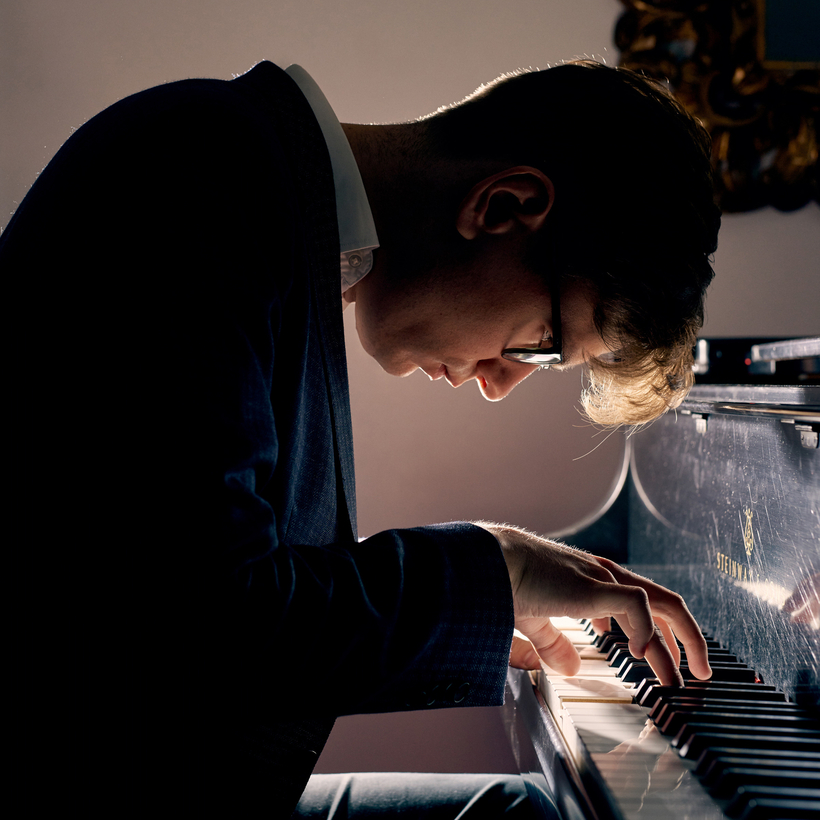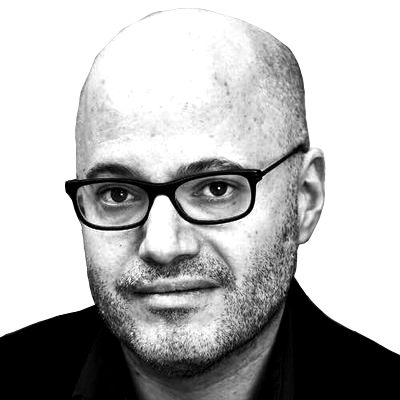“I think the piano can be the most glorious instrument in the world, but it can also be a very annoying instrument,” says the Icelandic pianist Víkingur Ólafsson, 39, who took time before a recent concert in Cleveland to chat with AIR MAIL. Ólafsson has been devoted to the piano since he was a child prodigy, and yet he is often at odds with the instrument itself.
“The way it’s set up,” he explains, “just with the physics of sound, it has around 12,000 parts that are handmade. It lacks focus and narrative, and becomes in-your-face bombastic. When it’s amazing, especially in some of Glenn Gould’s early work, you have a three-dimensionality of the sound. You have all these dialogues within the texture. You have all these tensions. The more you can sculpt the three-dimensional sound in the piano, the better. But that means your fingers have to work in a matter of millimeters, like micro-touch. I’m very specific about the way I want it to sound.”
Lean and elegant, Ólafsson has an itinerary that’s exhausting just to look at. After our talk, he moved on to Europe—whoosh—off to the Palais des Beaux-Arts, in Brussels, then the Concertgebouw, in Amsterdam. Remember the one about Herbert von Karajan getting into a cab? When the driver asked him where he wished to go, von Karajan replied, “It doesn’t matter. They want me everywhere.”
There is a reason they want Ólafsson everywhere. He has a way of slowing things down and letting you slip into Debussy or Mozart as if into cool water. In some ways, his Bach is as radical as Gould’s was. Bach had no indications on his scores, but Gould persuaded his exegetes—myself included—that his Bach, with all the internal drama he created, was the correct Bach. There’s an old saying that translations, or in this case interpretations, are like women: Some are beautiful and some are faithful. Ólafsson’s are beautiful, and they’re faithful too. Bach—the subject of Ólafsson’s next recording, though the Deutsche Grammophon Industrial Complex is keeping it hush-hush—is where he really reveals himself. “Playing Bach is like looking at myself naked in the mirror,” he says. “You see your strengths and your defects.”
When Ólafsson plays Grieg’s Piano Concerto in A Minor in four concerts this week—in Brussels, Eindhoven, Amsterdam, and Madrid—he will again confront “the physics of sound.” The concerto is personal for him, going back to the opening of the Harpa concert house, in his hometown of Reykjavík. “The date was May 4, 2011,” he says, “and I played this concerto as the very first sounds in this hall. The sense of excitement and energy is something I will never forget. Music-lovers in Iceland had been fighting for more than a hundred years to have a house for music, and then, all of a sudden, we had one of the great concert halls in the world.
“The Grieg concerto is the Nordic piano concerto,” he continues. “I love the directness of expression, the specificity and sometimes folksy flair of the themes, the overall optimism of the work. He was quite young when he wrote it. The world was at his feet, and you really feel it in the music.” Ólafsson puts everything he has—who he is, how the piano must sound—into everything he plays. Which is why they want him everywhere.
Víkingur Ólafsson will perform Grieg: Piano Concerto at the Palais des Beaux-Arts, in Brussels, on March 26
David Yaffe is a professor of humanities at Syracuse University. He writes about music and is the author, most recently, of Reckless Daughter: A Portrait of Joni Mitchell. You can read his Substack here

